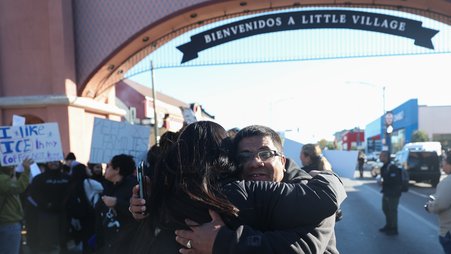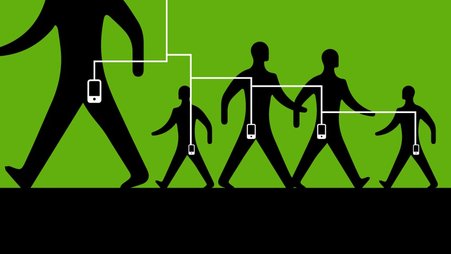This Friday November 7th, Freedom of the Press Foundation—along with Reporters Committee for Freedom of the Press and Open Technology Institute—are co-hosting a conference on journalism and digital security in Washington DC that will focus on how news organizations and reporters can use technology and encryption to better protect their sources in the post-Snowden age.
We have a great line-up of some of the best national security reporters and technologists in the country. We'll also be showing a screening of director Laura Poitras' new film on Edward Snowden and the NSA, CITIZENFOUR. The conference is free to attend, though space is limited and you must RSVP here. While the conference will not be webcast live, we will be posting the full video shortly after the event concludes.
Here is the full schedule:
9 a.m.: Real-World Encryption Problems. Leak investigations are at a record high and national security journalists now often work under a shadow of surveillance. By knowing the stakes and how to respond to them, reporters can assess the risks, and still keep their sources relatively safe. This panel will discuss current and future unsolved digital security problems in journalism. Panelists will include:
- Dana Priest, investigative reporter, Washington Post
- James Risen, investigative reporter, New York Times
- Christopher Soghoian, principal technologist and senior policy analyst, ACLU
- Julia Angwin, investigative reporter, ProPublica
10:15 a.m.: Beyond PGP, Protecting Reporters on an Institutional Level. Beyond encrypting individual email, panelists will look at the importance of utilizing the right systems company-wide to stave off hacking and other cyberattacks, as well as handing subpoenas and safeguarding sources. Panelists will include:
- Morgan Marquis-Boire, director of security, First Look Media
- Jack Gillum, reporter, Associated Press
- Nabiha Syed, associate, Levine Sullivan Koch & Schulz
- Xeni Jardin, editor, Boing Boing + Freedom of the Press Foundation
- Marcia Hofmann, digital rights lawyer
11:30 a.m.: Breakout Sessions:
Using Off the Record (OTR) chat: Attendees are encouraged to bring their laptops for this hands-on session on how to set up OTR encryption to protect sources.
Intro to PGP mail encryption: Attendees should bring their laptops for this tutorial on how PGP works and how to set it up for secure electronic communications.
Demonstration of SecureDrop: This demonstration of the system for enabling secure communications between journalists and sources, managed by the Freedom of the Press Foundation, will also focus on how to install and use it in your newsroom.
How to use Tails: It's been called critical for all the journalists reporting on the NSA, yet many people have never heard of it. Come learn how to install and use Tails, the secure operating system that attempts to make everything you do online encrypted by default.
Instructors include:
- Michael Carbone, Manager of Tech Policy, Access
- Erinn Clark, security engineer, First Look Media
- Oktavia Jonsdottir, Director of the SAFE project, IREX
- Garrett Robinson, lead developer on SecureDrop, Freedom of the Press Foundation
- Runa Sandvik, technologist, Freedom of the Press Foundation
- Kevin Gallagher, systems administrator, Freedom of the Press Foundation
- Mike Tigas, technologist and reporter, Pro Publica
12:30 p.m.: Lunch
1:30 p.m.: Security Lessons from the Snowden Files. Journalists involved in reporting on the NSA documents leaked by Edward Snowden will talk about what they learned from the experience and how it might be handled better in the future. Panelists will be:
- Spencer Ackerman, U.S. national security editor, Guardian US
- Siobhan Gorman, intelligence correspondent, Wall Street Journal
- Micah Lee, technologist, The Intercept
- Julie Tate, researcher and reporter, Washington Post
- Lynn Oberlander, general counsel, First Look Media
2:30 p.m.: Keynote (To Be Announced)
3:30 p.m.: Screening, “Citizenfour.” A special screening of filmmaker Laura Poitras’ new film CITIZENFOUR about Snowden and government surveillance will be held at the E Street theater not far from the conference. It will be free for all conference attendees.
The conference is made possible by the Knight Foundation, Ford Foundation, and Open Society Foundations.




